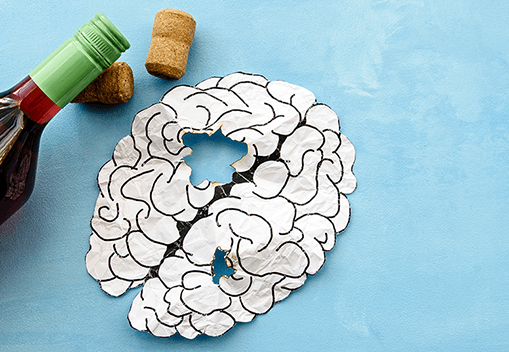The festive season can be full of late nights, travelling and overindulging, all of which can impact your physical and mental health. Keep our top tips in mind this holiday season and shine a little brighter.
Tip #1 – Make some time for shut-eye. When stress and anxiety mount during the festive season, it can be hard to fall or stay asleep. But good quality shut eye can calm frazzled nerves. Put your worries out of your mind before you climb into bed. At least an hour before bed:
- Make a list of any worries or concerns.
- Write down the tasks that you’re worried will go undone.
- Put the list in a safe place until morning.
Aim for seven hours of sleep each night for good physical and mental health.
Tip #2 – Keep an eye on your alcohol intake. As your body processes alcohol, you lose fluids and electrolytes causing your body to dehydrate. This is what makes the hangover the next day feel even worse. To avoid dehydration, make sure you alternate between one serve of alcohol and one glass of water. Also make sure you eat a nutritious meal before a big night out.
Tip #3 – Eat well as often as you can. Researchers have identified that weight gained over the holiday period is rarely lost. In addition, an Australian study by Nutrition Australia identified Aussies will gain an average of 0.8 – 1.5kgs over this period(1), thanks to larger portion sizes, more alcohol consumption and a larger range of calorie-dense foods. Try these simple tips to stay healthy during the silly season:
- Avoid going to parties hungry. Before the party eat something light. Think apple, yoghurt or wholegrain sandwich with chicken.
- Don’t try to lose weight over the Christmas season. Instead, aim to maintain your current weight.
- Watch your portion sizes. If your willpower is weak and you know you will want to finish everything in front of you, use an entrée plate instead of a dinner plate. That way you are sure to eat less.
- Fill up with foods from the BOTTOM layer of the Healthy Living Pyramid. These foods include vegetables, fruit, legumes, rice, pasta and cereals.
- Watch what you drink. There are hidden kilojoules in both the mixer and alcohol in drinks, so keep tabs on how much you are drinking and be aware of the extra kilojoules.
Tip #4 – Keep on moving. Currently, there is no other ‘medicine’ with greater benefits for the body than physical exercise. This party season, balance those nights out and office lunches with some physical activity. Try to exercise in the morning, before the family or work gatherings start, so you can relax and enjoy the day. The festive season is also the perfect time to use your family and friends to help keep you motivated, so invite them along.
Merry Christmas and a Happy New Year from Team Health by Design!
References: (1) – SBS –https://www.sbs.com.au/food/article/2019/12/09/heres-easy-proven-way-prevent-gaining-weight-these-holidays


